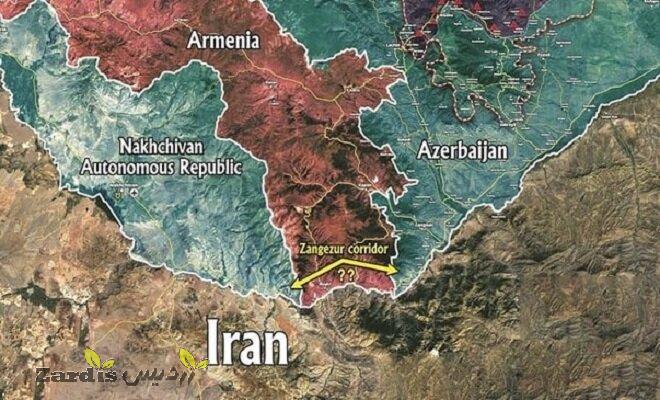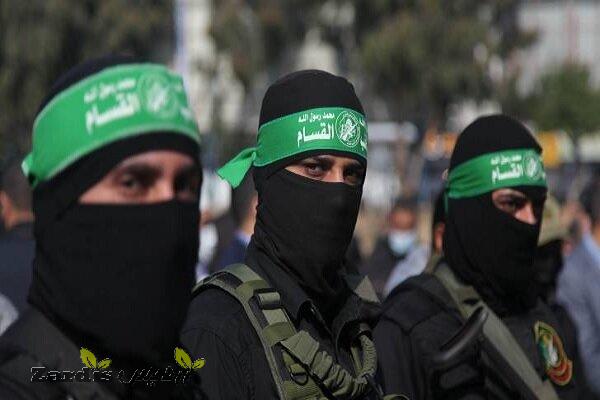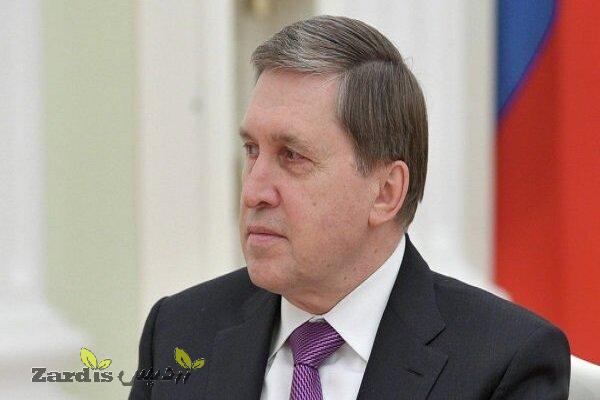After Armenia’s defeat in the 44-day Karabakh war and the signing of the peace agreement between Armenia and the Republic of Azerbaijan with the mediation of Moscow, there were speculations about how to connect the territory of the Republic of Azerbaijan to Nakhchivan. Azerbaijan President Ilham Aliyev and his Turkish counterpart Recep Tayyip Erdoğan sought to create Zangezur Corridor aiming to link the two parts of the so-called Turkic world for the first time in a bid to lay the ground for the “Middle Corridor” and the connection between China and the European Union. The realization of such a plan is practically in conflict with the national interests of Russia and Iran because it will cause these two big countries to be removed from major future transit routes. Meanwhile, such as creating such a corridor cut off Iran’s access to Europe to Europe forever.
Despite such a geopolitical risk, after Russian President Vladimir Putin visited Baku recently and met with his Azeri counterpart, it seems that Russia has made a miscalculation in managing this imminent risk and the plans to agree to connect the “Turkic world”.
Moscow’s failure to protect Armenia’s security and territorial integrity and the poor performance of Russian peacekeepers in the Lachin Corridor and the pressures felt by the Armenian residents in that region as a result forced the Armenian premier Nikol Pashinyan to revise his government’s previous security-military policies and go towards reviewing Yerevan’s relations with Western countries, especially the United States, France and India. Holding the join military drill between United States and Armenia named “Eagle Partner 2023”, defense cooperation between Yerevan and Paris, and 86% decline in Yerevan’s military relations with Moscow all show that Armenians do not trust their ally unlike in the past. The Armenian further seem to not put all their eggs in one basket and diversify their allies to protect their territorial integrity and sovereignty.
In reaction to the looking-to-West adopted by Pashinyan, the local Russian media outlets are trying to tell their fellow Russians that Armenia has followed in the footsteps of Ukraine and, therefore, it will inevitably face the same fate as Ukrainians. Some observers argue that given the fast pace of the expansion of Yervan’s ties with Western countries, the Russians intend to take pre-emptive action by agreeing to the formation of the Zangezur Corridor in a bid to lay the ground for containing the Turks and Erdogan’s future plans for the South Caucasus region.
After Putin’s visit to Baku, Russian Foreign Minister Sergey Lavrov, in an interview with Russian TV channel One, demanded to remove the blockage of communication between the Republic of Azerbaijan-Armenia-Nakhchivan. What notable was that Lavrov leveled accusations against Pashinyan and claimed that the Armenian leaders were obstructing the implementation of clause 9 of the 2020 Peace Agreement. Recently, Maria Zakharova, the spokesperson of the Russian foreign ministry, also recently repeated her country’s insistence on building Zangezur Corridor. Such statements made Mojtaba Demirchilu, the head of the Eurasian Department of the Iranian Ministry of Foreign summon the Russian ambassador to once again remind him of Iran’s opposition to any geographical change in the borders of South Caucasus region. At the same time, Iran’s ambassador to Moscow Kazem Jalali also voiced his strong protest toward the Kremlin. Moreover, it is necessary to make it clear to the Russian side that an old NATO ally cannot be trusted to circumvent Western sanctions, and that the Turks will soon separate their path from that of Moscow. If that is the case, Russia will be presented with a fait accompli and might be forced to use costly military means to block the advancement of the plan.
As Iran and Russia get closer to the conclusion of their strategic agreement, remarks like these from Russian officials are undoubtedly against the interests of the two countries and can endanger the prospect of signing and implementing such an agreement. Over the last three years, the Russian government and military have focused on the Ukrainian front as they have been seeking to prevent NATO expansion by punishing Kiev. In all this period, the Islamic Republic of Iran, as a “revisionist” actor on the international stage which is opposed to the presence of the West in its northern borders, has repeatedly opposed the formation of “NATO’s Turani Corridor” and has sent a message to the Azeri side by holding numerous military exercises. That if there is a change in the border between Iran and Armenia, Tehran will defend its national interests with all its might. Now, in such circumstances where tension between Tehran and Tel Aviv regime in the region has escalated, it seems that regional and trans-regional actors intend to take advantage of the situation and change the international borders in this region. Perhaps, it is necessary to remind the actors in the South Caucasus equations that the Islamic Republic of Iran is capable of acting on several different fronts and if necessary, will take the necessary measures to maintain regional peace and security.
Two years ago, as the presidents of Iran, Russia and Turkey were meeting in Tehran, the Leader of the Islamic Revolution pointed to the current tensions between Armenia and the Republic of Azerbaijan in the South Caucasus region and explicitly expressed his opposition to any change in the historical-internationally recognized borders. Ayatollah Seyyed Ali Khamenei starkly warned that Moscow and Ankara should know that any corridor in the South Caucasus region will have to meet Tehran’s three red lines: First, Zangezur Corridor in Syunik Province of Armenia has to be controlled by Armenian forces and there should be no change in the international borders. Second, Tehran’s interests should be taken into account in any corridor, and finally, the third redline was that the Islamic Republic of Iran will not allow the US, the Zionist regime, or NATO to step into its northern borders under the pretext of building a corridor.
What policy has Tehran adopted?
A look at the stances adopted by the high-ranking officials of the Islamic Republic of Iran over the past few years shows that they have maintained their unity and consensus in their policies and have shown no retreat from their previous positions. The Islamic Republic of Iran’s officials have on different occasions in talks with the authorities of Russia, Armenia, the Republic of Azerbaijan and the Republic of Turkey reiterated and announced that border connection between Iran and Armenia is of vital importance as one of the country’s geopolitical advantages and a way to Georgia, the Black Sea and Europe. This strategic stance is so crucial to Iran that any changes inside and outside of the other countries has no impact on Iran’s approach. In other words; Iran, regardless of the nature of the political competition between regional and extra-regional powers and regardless of the attitude of Yerevan’s internal politics, Iran peruses the approach of preventing geopolitical change and does not allow the existing order to change.
Regardless of the differences over the Zangezur Corridor, Iran seeks to maintain its relations with each of the important actors in this case, i.e. Russia, Turkey, Armenia and the Republic of Azerbaijan. Iran’s strategy is to preserve its national and historical interests by confronting the overt and covert efforts that are underway to disrupt the regional order. Anyway, they cannot by any means influence Iran’s will to preserve its national interests.
Any failure to respect and meet Iran’s red lines can cause serious changes to the country’s foreign policy. Accordingly, Russia is advised instead of hastily agreeing to the formation of the Zangezur Corridor and the Baku-Ankara plan in the region, to demand regular meetings of the 3+3 (Iran, Turkey and Russia with Azerbaijan, Armenia and Georgia) and not allow the borders of peace and friendship turn into border of tension and security crisis. All in all, building corridors in the South Caucasus can become a reality when the interests and security considerations of all actors are taken into account and the Western powers cannot undermine the relations between the neighboring countries under different guises.
KI/MA/6218022
- زردیس Zardis
- News code 55210
- 39 View
- بدون نظر
Zardis news | The latest news of Iran and the world
All rights reserved for "Zardis news"It is protected and any copying without mentioning the source is prohibited.
Pursuant to Article 12 of Chapter 3 of the Cybercrime Law, copying the format and content will be prosecuted.





